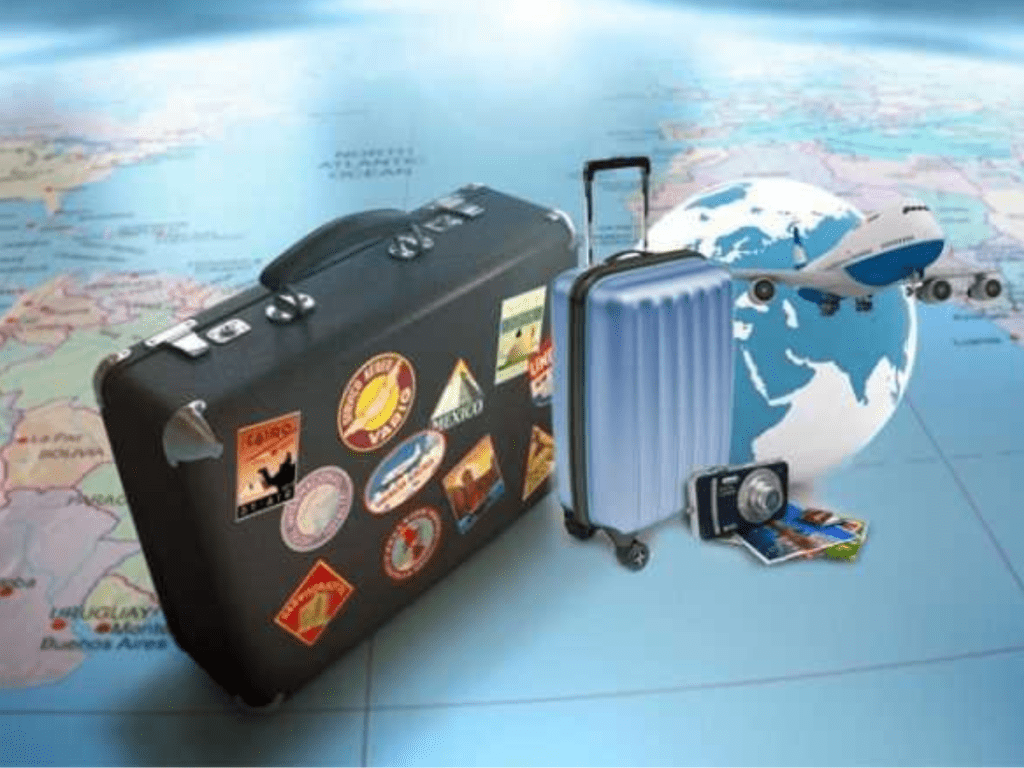Introduction
Traveling can be one of the most exciting experiences of your life, whether it’s for business, leisure, or a special occasion. However, as much as we plan and prepare for the trip, things don’t always go as expected. One of the most frustrating disruptions that can occur during your travels is a flight cancellation. Flight cancellations can happen for a variety of reasons, including weather disruptions, mechanical issues, or even airline strikes. While cancellations are sometimes unavoidable, you don’t have to bear the full financial burden that comes with it. Travel insurance, specifically, the coverage for flight cancellations, can protect you from unexpected costs and provide peace of mind when things don’t go as planned.
Travel insurance is designed to cover various aspects of your trip, including trip cancellation, trip interruption, medical emergencies, lost luggage, and, of course, flight cancellations. When you purchase travel insurance, you’re not just paying for a piece of paper; you’re investing in a safety net that helps mitigate financial risks associated with unexpected events during your travels. Here, we’ll explore how travel insurance can protect you in the event of a flight cancellation, what it typically covers, and why it’s a valuable addition to any travel plan.
Understanding Flight Cancellations and Their Impact
Before diving into how travel insurance helps with flight cancellations, it’s important to understand what can cause flight cancellations and what kinds of problems they can create.
Flight cancellations can happen for various reasons, including:
- Weather Conditions: Bad weather, such as snowstorms, hurricanes, or fog, can cause airlines to cancel flights to ensure passenger safety.
- Mechanical Issues: Aircraft malfunctions or safety concerns might require a flight to be canceled. These issues are often unexpected and can cause significant delays.
- Airline Strikes: Sometimes, airline staff, such as pilots or ground crew, may go on strike, resulting in widespread flight cancellations.
- Air Traffic Control Delays: Air traffic control issues can lead to delays and cancellations, especially during busy travel seasons.
- Other Factors: Issues such as crew rest requirements, security concerns, or operational issues can also result in canceled flights.
When your flight is canceled, you may experience significant disruptions, including missed connections, changes to accommodation arrangements, or delays in reaching your destination. This can also lead to unexpected expenses, such as accommodation costs, transportation, and meals while you wait for the next available flight. Without travel insurance, these costs can quickly add up, and you could find yourself in a difficult financial situation.
How Travel Insurance Helps with Flight Cancellations
Travel insurance offers coverage for various disruptions, including flight cancellations, and helps offset the costs that you would otherwise need to pay out of pocket. The protection offered by travel insurance generally falls under a category called trip interruption or trip cancellation coverage. These policies can help cover:
- Refunding Your Ticket Costs: When your flight is canceled and you are unable to take the next available flight, you could be entitled to a refund from the airline. However, airlines often have strict policies in place, and they may not fully refund the cost of your ticket, especially if the cancellation was caused by weather or other factors outside of their control. With travel insurance, you can file a claim to recover the cost of the canceled ticket, including any non-refundable portions.
- Covering Accommodation and Meal Expenses: When a flight cancellation results in a long wait before the next available flight, you may be forced to spend money on food, lodging, and other essentials. Travel insurance policies often include coverage for additional expenses, such as hotel stays and meals, which can significantly reduce the financial burden during a flight cancellation.
- Covering Additional Transportation Costs: If your flight is canceled and you need to find an alternate way to reach your destination (for example, by taking a train or renting a car), travel insurance may cover the costs of alternative transportation. This can save you money and provide a convenient way to continue your trip.
- Rebooking Fees: Many airlines charge rebooking fees when you need to change your flight due to cancellations. Travel insurance policies may cover these fees, ensuring that you’re not left with the financial responsibility for rescheduling your trip.
- Emergency Travel Assistance: Some travel insurance policies include 24/7 emergency assistance services that can help you make alternate arrangements when a flight is canceled. This might include helping you find a new flight, arranging for lodging, or providing other resources to minimize the inconvenience caused by the cancellation.
- Compensation for Lost Vacation Time: If your flight cancellation results in a delay that causes you to miss out on valuable vacation time or business meetings, some policies offer reimbursement for lost vacation days or business income. While this is a more specialized coverage, it’s available in some comprehensive travel insurance policies.
What Does Travel Insurance Not Cover?
While travel insurance can offer extensive protection in the event of a flight cancellation, there are limitations to what it can cover. Here are some of the exclusions commonly found in travel insurance policies:
- Non-Covered Reasons for Cancellations: If the flight cancellation is due to reasons outside the scope of the policy (for example, if the airline cancels the flight for reasons deemed “within their control” such as overselling seats), travel insurance might not provide coverage. Be sure to review the policy’s terms and conditions to understand which situations are covered.
- Voluntary Cancellations: If you choose to cancel your flight for personal reasons, such as changing your mind about the trip, this is generally not covered by travel insurance. Policies typically cover cancellations due to unforeseen and uncontrollable events like illness, weather, or strikes.
- Pre-Existing Conditions: Some policies have exclusions for cancellations related to pre-existing medical conditions, meaning if you have a known illness and cancel your flight due to that condition, you might not be eligible for reimbursement. It’s important to read the fine print and look for policies that offer pre-existing condition waivers, especially if you have health concerns.
Choosing the Right Travel Insurance for Flight Cancellations
Not all travel insurance policies are the same, and it’s important to select the right one that meets your needs. When choosing a travel insurance policy that covers flight cancellations, consider the following factors:
- Coverage Limits: Look for a policy that offers high enough coverage limits to protect you from the full cost of canceled flights, accommodation, meals, and transportation. Policies often vary in terms of how much they will pay out in the event of a cancellation, so ensure the limit aligns with your trip costs.
- Reasons for Coverage: Ensure the policy covers a wide range of flight cancellation reasons, including weather disruptions, strikes, mechanical issues, and other unforeseeable events. Some policies offer more comprehensive protection than others.
- Travel Assistance Services: Consider purchasing a policy that includes 24/7 emergency assistance services. These services can provide valuable support during a flight cancellation and help you make quick decisions about rebooking flights, finding accommodations, and managing other disruptions.
- Policy Exclusions: Carefully review the exclusions in the policy. Pay attention to details such as non-covered events, pre-existing condition clauses, and cancellation penalties that might apply. Understanding these exclusions upfront can help you make informed decisions when purchasing coverage.
- Cancel for Any Reason (CFAR) Coverage: Some travel insurance plans offer an option called Cancel for Any Reason coverage. While more expensive, this option allows you to cancel your trip for reasons not typically covered by standard policies, including personal reasons like changing your mind about travel. This can be useful if you anticipate that you might need additional flexibility.
Conclusion
Flight cancellations are a frustrating reality of modern travel, but they don’t have to ruin your entire trip or lead to significant financial losses. Travel insurance is an essential tool for protecting yourself against the financial consequences of flight disruptions, and it can provide a safety net in case your flight is canceled. From covering ticket refunds and accommodation costs to providing emergency travel assistance, travel insurance offers vital support that can make your journey less stressful and more enjoyable.
When purchasing travel insurance, be sure to carefully review the policy details, including coverage limits, exclusions, and available services. By selecting the right policy, you can ensure that you’re prepared for the unexpected and able to continue your trip with peace of mind, even if your flight is canceled.
In the unpredictable world of travel, having travel insurance can be the difference between a stressful nightmare and a smooth, well-managed experience. As with all insurance policies, it’s important to read the fine print, understand what is and isn’t covered, and select a plan that best suits your travel needs. With the right coverage in place, you’ll be ready to face flight cancellations and other travel disruptions without worrying about the financial impact.

